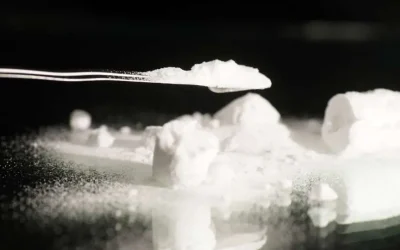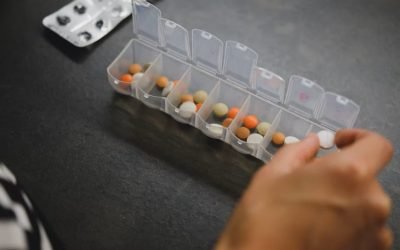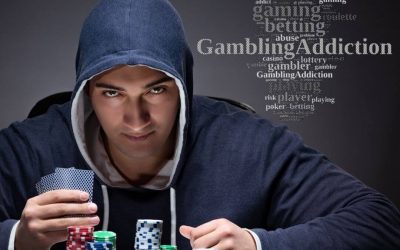Last updated: November, 2025
Many people wonder whether addiction runs in families, if it’s something passed down through genes or shaped by the environment. The truth is more nuanced and more hopeful. While genetics can increase the risk of addiction, they do not define anyone’s future. Family history, personality, and environment all play a part, and understanding how they connect helps explain why addiction affects some people more than others.
Can Addiction Be Passed Down in Families?
Addiction is not inherited in the same way as eye colour or height, but genetics can influence how the brain responds to substances or certain behaviours. Research shows that having a parent or sibling with an addiction may raise the likelihood of developing one, especially related to alcohol or drugs.
This happens because of genetic predisposition: a set of traits that can make someone more sensitive to pleasure, stress, or reward. But this sensitivity is not destiny. Many people with a family history of addiction never develop one, while others without any family history might struggle.
In short, genes can increase vulnerability, but they do not decide the outcome. What matters most is how those genes interact with life experiences, emotions, and choices.
Why Addiction Sometimes Runs in Families
When addiction appears across generations, it often reflects both biological and learned patterns. Growing up around substance use can normalise certain behaviours; for example, drinking to relax or using drugs to cope with stress. Over time, these learned responses can become habits.
Yet family influence can also work in the opposite direction. Some people who witnessed addiction as children make a conscious decision to avoid those same paths. They might develop strong awareness, empathy, and boundaries as a result.
So while genes may create a predisposition, family culture and behaviour often shape how that risk unfolds. The combination of exposure, emotional modelling, and support systems can either increase or reduce vulnerability.
The Role of Personality and Mental Health
Each person has unique emotional and psychological traits. Some people experience emotions with great intensity or find it hard to calm themselves under stress. Others may be more impulsive or thrill-seeking. These traits, often influenced by both genetics and upbringing, can make addiction more likely, especially when substances offer quick relief or distraction.
Mental health plays an important role as well. Conditions like anxiety, depression, or trauma can increase the temptation to use substances to manage feelings. This doesn’t mean weakness or lack of control; it simply means the brain is searching for balance.
In some cases, people face both addiction and a mental health condition, known as a dual diagnosis. Understanding this link helps explain why effective treatment must address both emotional wellbeing and addictive behaviour together.
How Environment and Circumstances Shape Addiction
The environment we live in can deeply influence the way addiction develops. Family dynamics, social surroundings, economic stress, and even cultural habits all play a part.
For instance, someone raised in a home where alcohol is part of everyday life may not view heavy drinking as risky until it causes problems. Similarly, living in an environment with high stress or limited emotional support can make substances feel like an escape.
Experts often describe this interaction through the person, drug, and environment model. It suggests that addiction rarely comes from one single cause; it arises from how personal traits, the properties of a substance, and social context combine.
Two people can grow up in the same family and still take different paths. One may avoid substances completely, while the other might find comfort in them. The difference lies in how personality, biology, and environment come together in each individual story.
Nature vs. Nurture: It’s Never One or the Other
The debate between “nature” and “nurture” doesn’t really fit when it comes to addiction. Both are connected. Genetics can make someone more sensitive to certain experiences, but environment, relationships, and emotional learning can reshape that sensitivity.
This means no one is destined for addiction, even with a family history. It also means no one is immune, even without one. Understanding this balance removes blame and helps families see addiction not as a failure, but as something that develops through complex human factors and can be changed through care and support.
Addiction is never about one cause or one choice. It is the result of many small interactions between who we are and what we experience.
You Are More Than Your Family History
Having a family history of addiction doesn’t define your story. It’s simply one part of the picture. Knowing that there may be a hereditary or environmental link can be empowering; it helps people understand themselves better and recognise where patterns come from.
Healing starts with compassion and curiosity, not guilt or fear. Understanding how genetics, emotions, and environment connect can help individuals and families make sense of their experiences and rebuild their lives in healthier ways.
Frequently Asked Questions: Is Addiction Hereditary?
Not exactly. You can inherit certain traits (like stress sensitivity or impulsivity) that can make addiction more likely. But behaviour, environment, and emotional coping matter just as much.
Even within the same family, experiences differ. Personality, social influences, and life events shape how each person reacts to challenges and substances.
No. It means there may be a higher risk, but not a certainty. Many people with addicted parents never develop addiction themselves, especially if they learn healthier ways to manage emotions.
Yes. Substances like alcohol, opioids, or stimulants show stronger genetic links than behavioural addictions such as gambling. Still, external influences are equally significant.
Building emotional resilience, maintaining supportive relationships, and seeking help early can make a big difference. Learning about family patterns can also turn awareness into prevention.








